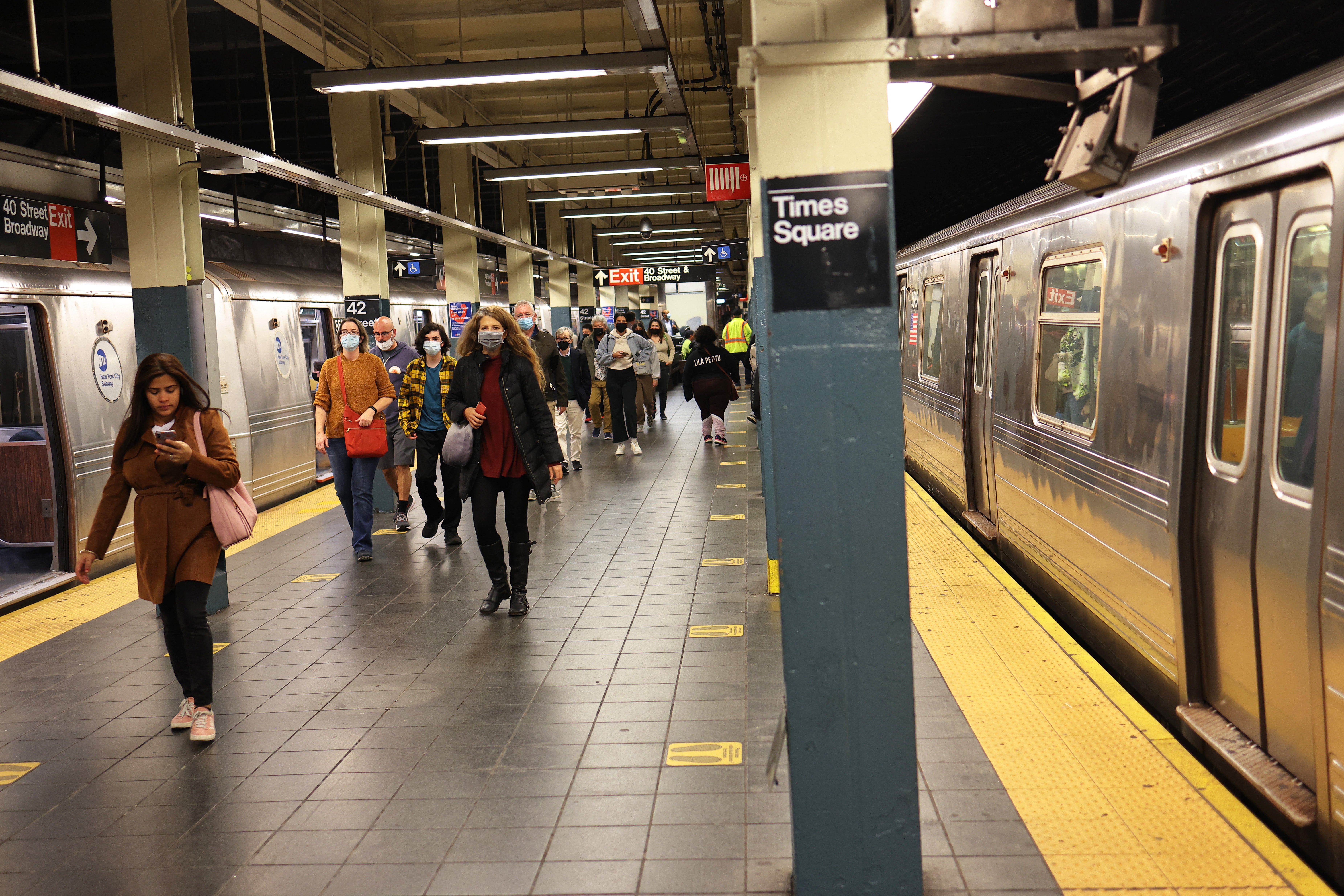The New York subway system is exposing commuters to toxic air 10 times the recommended health limit
Air pollution has killed 135 million people in the last 40 years

Your support helps us to tell the story
From reproductive rights to climate change to Big Tech, The Independent is on the ground when the story is developing. Whether it's investigating the financials of Elon Musk's pro-Trump PAC or producing our latest documentary, 'The A Word', which shines a light on the American women fighting for reproductive rights, we know how important it is to parse out the facts from the messaging.
At such a critical moment in US history, we need reporters on the ground. Your donation allows us to keep sending journalists to speak to both sides of the story.
The Independent is trusted by Americans across the entire political spectrum. And unlike many other quality news outlets, we choose not to lock Americans out of our reporting and analysis with paywalls. We believe quality journalism should be available to everyone, paid for by those who can afford it.
Your support makes all the difference.The New York City subway system is exposing commuters to toxic air that far exceeds global health recommendations, a new study has found, with Black and Hispanic workers disproportionately impacted.
Air pollution on subway platforms is ten times the daily limit set by the World Health Organization, while pollution on trains is seven times that limit, according to the research from New York University.
Some 5.5 million people are exposed to these toxic levels on a daily basis, according to the study, published on Wednesday in the peer-reviewed journal, PLOS One.
Black and Hispanic workers are exposed to 35 percent more polluted air than Asian workers and 23 percent more than white workers, the research team found. This is likely because Black and Hispanic workers tend to live further from their jobs, meaning they spend more time on the subway system.

Long term exposure to polluted air can cause asthma flare-ups, difficulty breathing, and in the longterm, heart disease and cancer, according to the National Institutes of Health. Children, old people and pregnant people are the most vulnerable to these health impacts.
Train exhaust, dead rodents and poor ventilation are all contributing to air pollution in the subway system, a separate 2021 study found. That same research indicated that the New York subway is the most-polluted of major transit systems.
However, air pollution remains a concern for everyone, not just subway riders.Some 135 million people have died in the last four decades from air pollution, a recent study from the Nanyang Technological University of Singapore revealed.
And the deteriorating climate crisis is playing a role as an increase in air pollution is linked to more destructive wildfires.
A study published earlier this week also indicated that exposure to air pollution can negatively impact day-to-day moods - following findings that heightened anxiety and depression are connected to long-term exposure to poor air quality.
Join our commenting forum
Join thought-provoking conversations, follow other Independent readers and see their replies
Comments